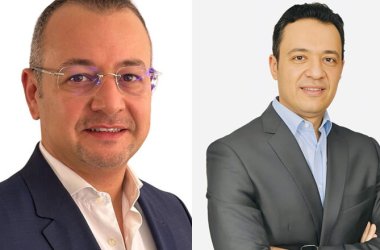
On the sidelines of the show, Emad Haffar, Head of Technical Experts, Middle East, Türkiye, and Africa at Kaspersky, discussed the company’s focus areas at GITEX and how it is supporting the region’s growing AI ambitions.
At GITEX 2025, Kaspersky highlighted its latest innovations built to help organisations across the Middle East strengthen resilience against advanced threats.
“Our role is to support our enterprise clients in analysing their cybersecurity requirements and challenges”, said Haffar. “At this GITEX, we’re focusing on several key topics, one of which is cyber immunity”.
Haffar explained that Kaspersky has been building on the concept of cyber immunity, which was introduced a few years ago. “We’re showcasing the newer version of the Thin Client, which is based on the cyber immunity concept. It’s a remote desktop solution built on top of Kaspersky OS and designed to be immune by design”.
Another major highlight for Kaspersky this year is the expansion of its Kaspersky Next product line. “We’re promoting two new additions to our flagship product, Kaspersky Next XDR Optimum and MXDR”, said Haffar. “You can think of these as a bridge between the highly demanding, sophisticated XDR tool and the EDR tool. They introduce threat hunting capabilities, advanced detections, and analysis components, but without the pressure on human resources or analysts”.
The UAE’s growing investment in artificial intelligence is a major opportunity for cybersecurity. Haffar said Kaspersky has been deeply engaged in helping organisations secure their AI initiatives.
“We’ve been investing in and using AI and machine learning applications for many years”, he explained. “We have a dedicated research team developing machine learning models, LLM models, and AI at large. We’re engaging with enterprises and government entities in the UAE and the region to see how we can fit our solutions and expertise to support their AI strategy and vision”.
He pointed out that, according to a recent report by IDC, AI spending in the META region reached US$4.5 billion in 2023 and is projected to grow to US$14.6 billion by 2028. “One of the key discussions we have with clients is how this huge infrastructure being built for AI will be used, what models will be developed, what use cases they will serve, and how these technologies can improve the services and solutions provided to clients in the region”, he said.
While AI offers immense potential, it also introduces new risks. Haffar emphasised the importance of protecting AI models from malicious interference.
“A lot can be done in how these models are built, developed, and trained”, he highlighted. “We look at it from the perspective of how we can secure these models, what measures, technologies, and components can protect LLMs from intervention or poisoned data that could alter their operation. We’re also working on targeted solutions to defend these models by using technology and by monitoring the processes used to build and develop them”.
Kaspersky is also revealing key findings from its Advanced Persistent Threat (APT) research at GITEX. “We’re currently tracking around 25 APT actors targeting the region”, said Haffar. “They mainly focus on high-profile sectors such as government, critical infrastructure, finance, military, and telecommunications”.
Furthermore, the company’s latest data from Kaspersky Security Network (KSN) highlights an increase in various malicious activities across the GCC. “We have seen a rise in password stealers and spyware, and a slight increase in ransomware”, Haffar noted. “However, the behaviour is changing. Threat actors are becoming more targeted and selective, aiming to cause greater damage rather than casting a wide net”.
He added that attackers are also using AI in their campaigns, improving phishing and social engineering techniques. “This is the worrying part; threat actors will also use these technologies. It’s a race between how both sides utilise AI”.
In conclusion, he said: “We’re very excited to be here at GITEX and to connect with our customers and partners, and to share how we can help companies across the region strengthen their cybersecurity”.
Image Credit: Kaspersky





